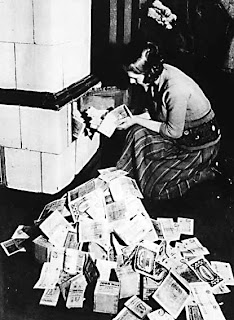
A glimmer of hope on close of business Friday, October 17: the TED spread dropped below 4 pts, and global markets closed significantly up, including the FTSE, Dow Jones, Hang Seng, and the Nikkei.
Journal of a middle-class family during the financial crisis



 There is so much big-picture economic news these days that it is sometimes hard to see how the current financial trouble affects us individually, except by watching our 401k value drop through the floor.
There is so much big-picture economic news these days that it is sometimes hard to see how the current financial trouble affects us individually, except by watching our 401k value drop through the floor. Looks like I may own a bank soon!
Looks like I may own a bank soon!
"[T]the key is consumer spending. Personal income fell 0.1% in April, with wages and salaries down a larger 0.4%. Real disposable income also fell 0.4%. This leaves it up just 0.4% annualized over the past three months, which is not supportive of significant increases in consumer spending. As we noted last weak, retail sales and discretionary spending is down."Mauldin argues that hourly wages are the horse that pulls the cart of consumer spending, and changes in those wages predict economic malaise.
 I was hoping the market would bounce back a little today. Instead, it fell off the trampoline.
I was hoping the market would bounce back a little today. Instead, it fell off the trampoline. You never know.
You never know.*Note: you don't need an iPod to listen to them; you can listen to them on your computer, or download them and burn to CD, or transfer to any MP3 player you like.After the news from Iceland today, the hairs on the back of my neck are standing up. I'm probably overreacting, but just in case, I thought I would document this period in our family's life, in case it brings any wisdom and perspective for my daughter Danielle, years from now. I'll explain what I understand about the crisis, but the podcasts do a probably do a better job of that.